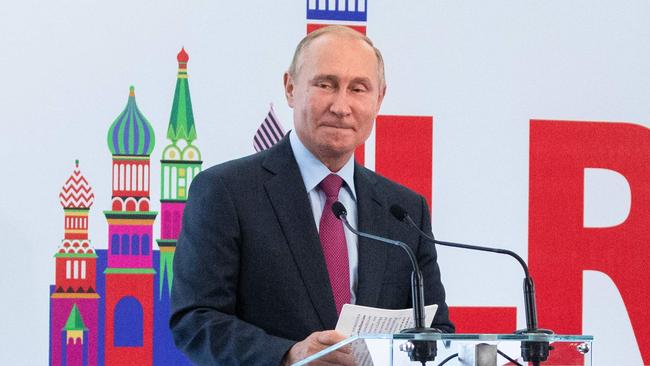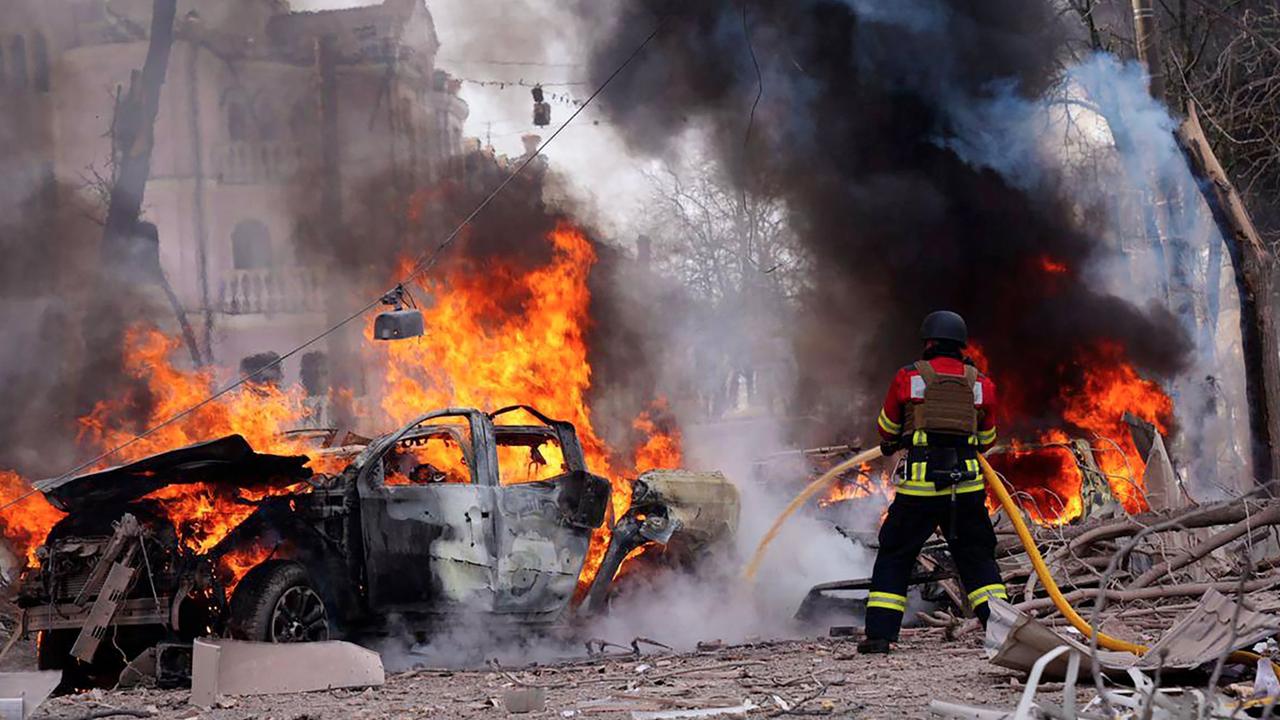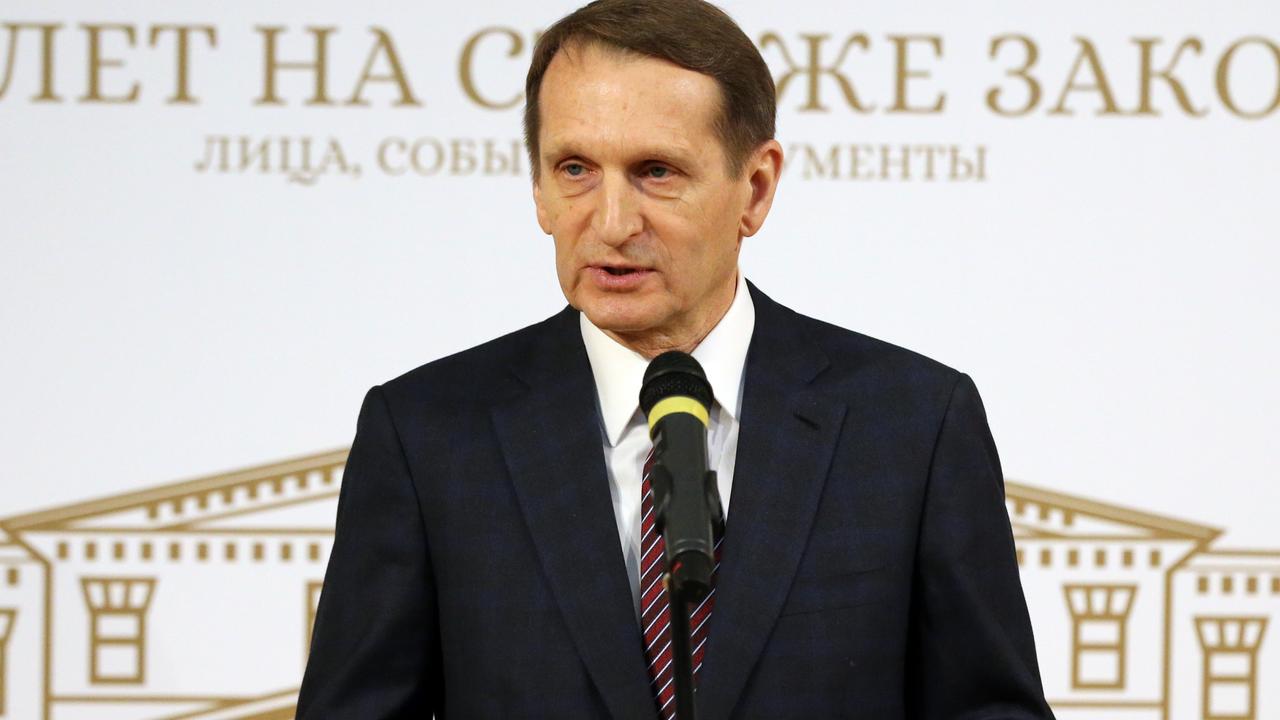Trump needs Putin to help bridge his credibility gap

Now we’re at it again. Thirty-five Ukrainians, including a film director and two dozen hapless sailors, were this month traded for some hardnut separatists including Vladimir Tsemakh, the commander of a Russian-backed unit in Donetsk which shot down the civilian MH17 airliner in 2014.
Plenty of Dutch and Australian relatives of the victims of that Malaysian Airlines flight are unhappy that Tsemakh is now going to be out of reach, living on a Russian pension with a new name. And many Ukrainians, knowing the effort it took to track him down and put him in jail, will be furious too. One of the soldiers in the snatch squad died after treading on a mine. Another lost his leg. Now there is talk of a second swap, involving several hundred more imprisoned Ukrainians and Russians.
This flurry of activity has a reason: Donald Trump, egged on by Emmanuel Macron, sees a chance of re-setting America’s relationship with Russia. The incentive for Vladimir Putin would be the phased lifting of Western sanctions. That could de-fang the urban protest movement currently eroding Putin’s United Russia party. But sanctions relief would have to be linked to a “normalisation” of relations between Kiev and Moscow. Prisoner swaps entail backchannel communications and thus supposedly help build confidence between governments.
The new President of Ukraine, Volodymyr Zelensky, a former comic actor, is taking the bartering seriously and wants other gestures from Moscow. He is aiming for a disengagement along the 400km frontline in eastern Ukraine, a clearing of minefields on both sides, and free elections in the disputed regions. If Putin comes close to granting a concession then the ball could start to roll.
Macron, in his meeting with Putin before the G7 summit in Biarritz last month, hinted that the Russian leader should be brought back into the fold. Demonising Putin, the French President explained to diplomats, would only nudge Russia and China closer together. Macron may be chasing a fantasy version of Putin, seeing in him a Slav pragmatist who instinctively looks west rather than east, a pale copy of the modernising tsar Peter the Great. More likely, though, Macron sees an opportunity to help engineer a US-Russia reconciliation and thus establish himself as a linchpin of the transatlantic alliance.
With Britain sidelined he could become the EU’s chief explainer of the Trump administration. He shares Trump’s understanding of vanity as a driving force of summit diplomacy and, beware, that may be enough to push through an ill-advised rehabilitation of the Kremlin.
On Russia, Macron has become the US President’s enabler. The whiff of sulphur about the administration’s early dealings with Kremlin dunces makes it difficult for the White House to love-bomb Putin. But the attraction for Trump is clear: no other area of tension in the world seems so fixable as the Moscow logjam. Not China and the trade war, not Afghanistan, not North Korea, Venezuela, not Iran.
The scorecard is meagre even if it isn’t quite as miserable at it is presented by Trump’s critics. His goal of a denuclearised Kim Jong-un? The dictator hasn’t offered up inventories of his weapons and he’s testing short-range weapons that could hit US bases in Asia. But he has stopped testing long-range missiles that could one day hit the US mainland. Trump would need to deploy carefully rationed reciprocal concessions but that’s too slow for the election cycle.
Trump held out the carrot of a meeting with the Iranian President Hassan Rouhani in New York; days later Tehran’s proxies tried to cripple the global oil trade. Getting US troops out of Afghanistan before 2020 seemed like another creative use of foreign policy to boost the President’s statesmanlike credentials. That turned out to be a dud.
Moscow by contrast could play a useful part in levering the Venezuelan leader Nicolas Maduro out of power and help Trump claim a victory to Latino voters. It could nudge the Kim regime. And if Trump is still angling for a 2020 Nobel peace prize nomination, an arms control agreement could be sealed with the Kremlin. Trump has found that megaphoning and simplifying international problems can change the terms of a conflict. But he can’t bring about solutions without the selective use of US force, without strategic doctrine or consistency.
Putin may seem to Trump to be a way of plugging this credibility gap, a useful partner at a time of extraordinary global flux. And he may calculate that embracing Putin will add to his international standing rather than represent a fatal retreat. The principle that must hold, though, is that relations with Russia cannot return to anything resembling normality as long as it clings on to Crimea, the land it so cynically grabbed five years ago.
The Kremlin will try to bamboozle the new, inexperienced Ukraine President, counting on Western leaders to lean on him and display selective amnesia. Britain, which saw the public poisoning of Sergei Skripal and his daughter, shouldn’t stay silent through this whitewash.
The Times



In 15 years of covering East-West Cold War prisoner swaps I came to a single conclusion: Russia always wins. At one end of the handover bridge there was always a sallow dissident fished out of the gulag and scrubbed up for the cameras, and at the other end a KGB agent plumped up by Western food and looking forward to serious dacha time.